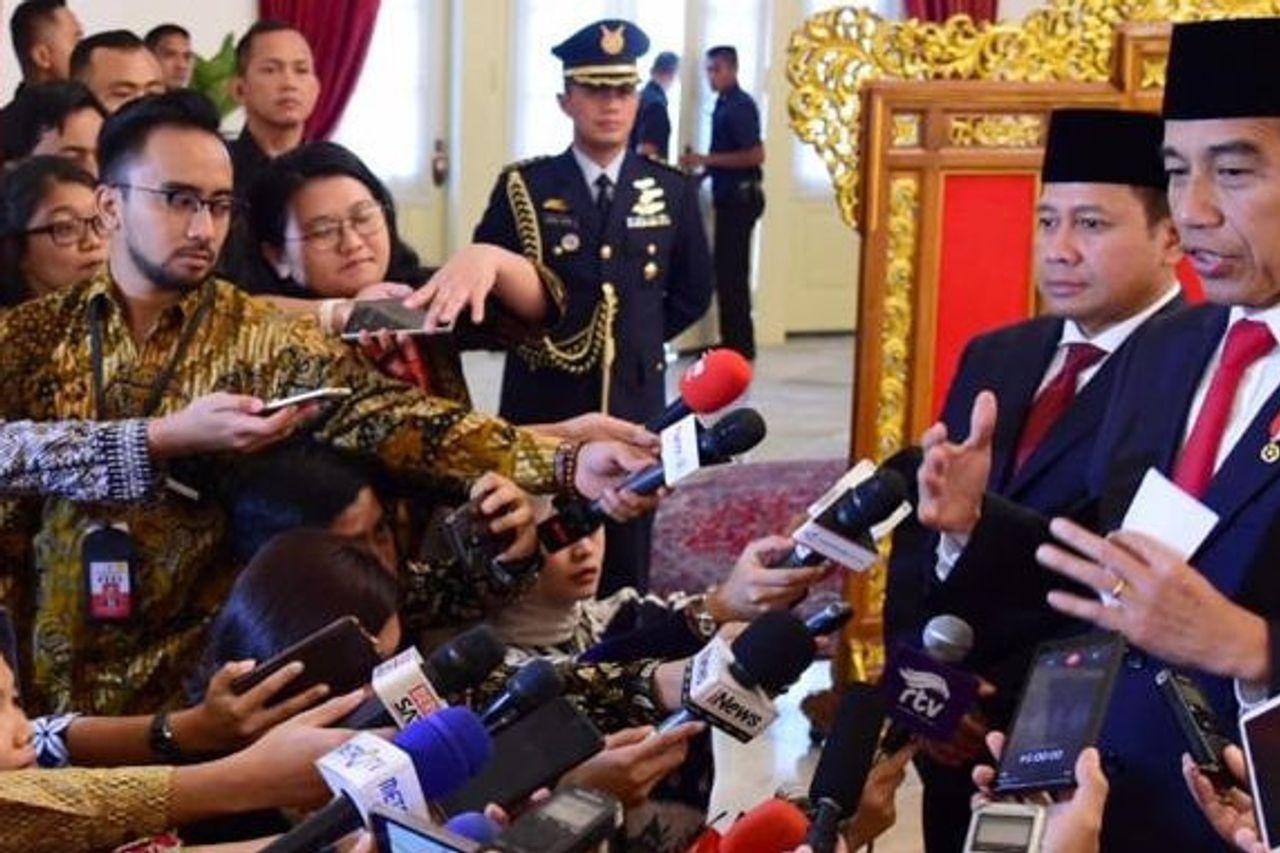Jokowi's Way Of Ignoring ISIS, Former Indonesian Citizens In The Middle East

JAKARTA - The Indonesian government has decided not to repatriate Indonesian citizens who were former ISIS combatants. This decision was taken in a meeting with the relevant authorities, in order to maintain the security and stability of the country.
In order to further reinforce the rejection of Indonesian citizens who volunteered to join the terrorist group, President Joko Widodo called them 'ISIS ex-Indonesian citizens'.
The mention of ISIS, ex-Indonesian citizens, was conveyed by Jokowi, when he again explained the reasons for his government refusing to repatriate the 689 former combatants from Indonesia who were in three camps in the Middle East region.
"I think yesterday it was conveyed that the government has security responsibility for Indonesia's 267 million people, that's what we prioritize. Therefore, the government has no plans to repatriate the people who are there, ISIS ex-Indonesian citizens," said Jokowi at the Palace. Presidency, Jakarta, Wednesday, February 12.
The government is responsible for the 260 million inhabitants of this country. Therefore, the government does not plan to repatriate the ex-Indonesian ISIS members. I have ordered that the 689 people be identified one by one. The data is entered into immigration for blocking processes. pic.twitter.com/1HcVnrgEU2
- Joko Widodo (@jokowi) February 12, 2020
Not only rejected, Jokowi also ordered related parties to record Indonesian citizens who joined the terrorist group. The goal is to prevent them from returning to Indonesia because they have been exposed to the understanding of terrorism.
In addition, the former governor of DKI Jakarta stated that what the government is currently doing is a consequence of the choice of hundreds of ex-Indonesian ISIS members.
"Because it has become their decision, of course everything should have been calculated and calculated by the person concerned," he said.
Meanwhile, for children under the age of 10, the government still opens opportunities for them to be sent home. Condition, they must be identified first. However, Jokowi said that his party did not yet know whether any children were participating in the camp.
Menkopolhukam Claims
Apart from not being sent home, hundreds of Indonesians who joined ISIS and settled in the Al Roj, Al Hol, and Ainisa camps will be left alone as long as they do not report to government authorities.
Because, according to the Minister of Political, Legal and Security Affairs (Menkopolhukam) Mahfud MD they did not report and if they were approached by officers from the Indonesian authorities they would hide.
Thus, Indonesia currently does not have complete data regarding the number of their residents in the camp and even if there is data, they are from the Central Intelligence Agent (CIA) and the International Committee of the Red Cross (ICRC). international red.
"Yes, they have never shown themselves. Their passports were burned," Mahfud told reporters, Wednesday, February 12 and added that so far the government knows that any of its citizens have joined ISIS but denied that they wanted to return home.
"Who are you asking to go home? That's a report, a report. ... They don't recognize them as Indonesian citizens," added the former Chief Justice of the Constitutional Court (MK).
Mahfud also emphasized that whoever ex-ISIS Indonesian citizens who return through the mouse route or illegal immigration routes will be arrested by the legal and security authorities. He said the government had prepared several steps, but he did not want to elaborate on them.
"The problem is if there are those who hide their passports. They say their passports are just pretending to be burned and then go through an illegal route through a visa-free country to enter Indonesia. It can happen. We have anticipated that," said Mahfud.
Regarding the rejection of repatriation, former convicted terrorist Ali Fauzi welcomed the decision made by the government. Because, in addition to the large cost of repatriating the former ISIS Indonesian citizen, the younger siblings of Amrozi and Ali Ghufron, who are the perpetrators of the Bali bombing terror, believe that the government will find it difficult to provide guidance.
"When they are sent home it is not easy to foster them either. Not only fathers, not only mothers, their children will also have problems," Ali said when contacted by reporters in Jakarta, Wednesday, January 12.
However, Ali asked the government's attitude to soften a little and provide exceptions and be able to repatriate some of the children, maybe even mothers who were in the camp.
"We need to see that maybe in the future there will be exceptions where there are children or maybe mothers. But for combatants, who have such strong radical tension, I think this decision must be respected," he concluded.
